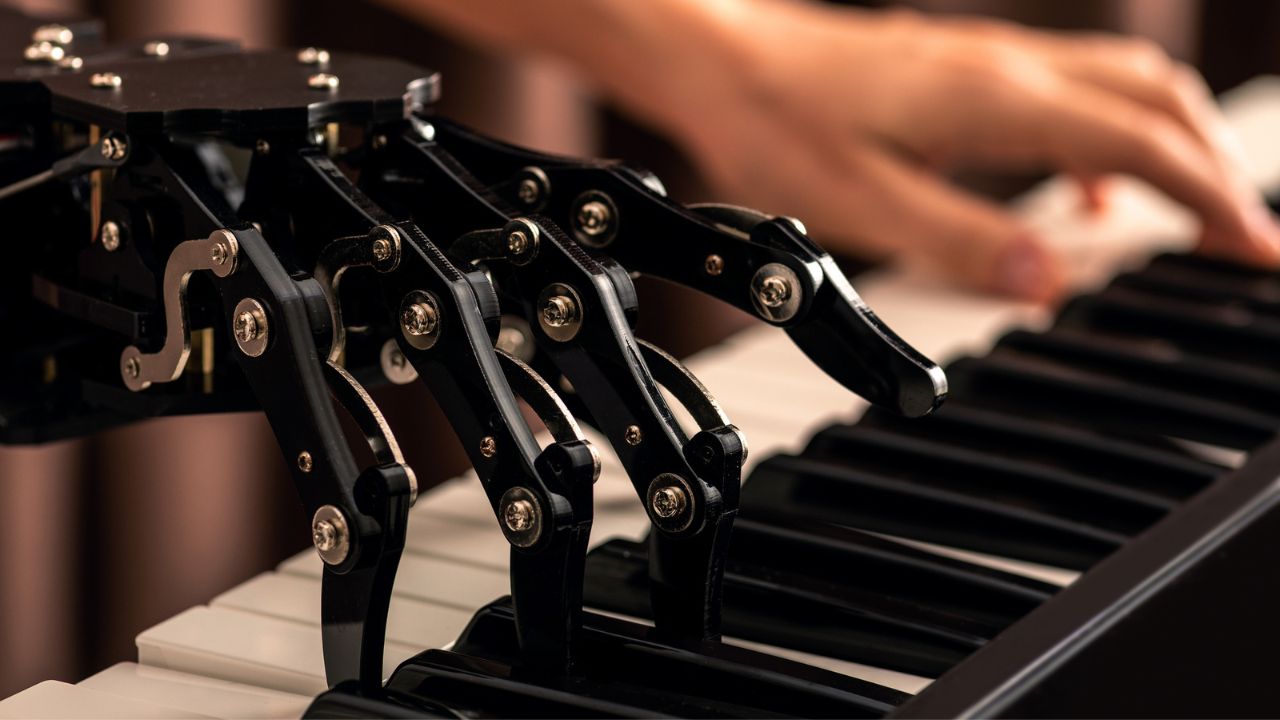Music, cinema, video games and literature. L’Generative Artificial Intelligence it is becoming more and more established as an opportunity in the creative field and more and more like a danger for copyright. And while on the other side of the globe hordes of screenwriters and actors are putting Hollywood, the biggest open-air money printer in the world of entertainment, on hold, in Europe the topic is hotter than ever.
Yesterday, for example, the conference called Artificial Intelligence: creativity, ethics, law and marketmeeting promoted by the Undersecretary of State Lucia Borgonzoni. The works lasted a whole day but, in this article, we want to focus on the panel that had as its focus the controversial relationship between generative artificial intelligence and copyright.
They participated in the round table Marco Bassetti (Chief Executive Officer of Banijai Group), Matteo Fedeli (General Director of SIAE – Italian Society of Authors and Publishers), Enzo Mazza (President of the Intellectual Property Committee of the American Chamber of Commerce in Italy as well as CEO of FIMI – Italian Music Industry Federation), Dario Migliavacca (Managing Director of Ubisoft Milan) e Andrea Santagata (Managing Director of the Digital and MarTech area of Mondadori Media SpA and Chief Innovation Officer of the Mondadori Group).
As is evident from the list of names of the interventions, the debate attempted to touch on the various areas of the creative sector, from television and film productions to the world of video games, obviously passing through music.
In the audiovisual sector: deep fakes and the problem of recognition
Try Amazon Music with 3 months of free use, cancel at any time
Recognizing the workers’ rights issue emerging in the United States, Marco Bassetti from Banijai, an audiovisual production company, began his speech by showing us a video. This is a clip (found below) from the series Deep Fake Neighbour (produced by Banijai), in which artificial intelligence physically (and meticulously) recreated the features of some characters from the show, inserting them into a real context for entertainment purposes.
“This video created quite a stir and opened an important discussion,” says Bassetti. “On the one hand we see the potential of artificial intelligence, while on the other the risks of it”.
According to Bassetti current concerns about copyright will be mitigated by regulationscurrently absent, which will place limits on the technology.
“We believe that man’s creativity and creative talent will never be replaced. AI is based on Machine Learning, statistics. And we all know that statistics is not creativity, on the contrary, it leads to replicating what already exists. Creativity for us is, and remains, a human talent”, states Marco Bassetti at the conclusion of his speech.
Enzo Mazza on Generative Artificial Intelligence: “Prior authorization is a first step to preserve copyright”
Going into the specifics of the discussion on copyright, Enzo Mazza proposes a first distinction between Artificial Intelligence and generative Artificial Intelligence. The latter, the one capable of “creating” works and texts, is the technology to keep an eye on most. Mazza believes that universal regulation is pure utopia, given that each individual country (or continent) will tend to preserve its own interests. Placing the emphasis on Europe, Mazza states that a first step to “keep the monster at bay” already exists: AI platforms must request prior authorization to have access to works protected by copyright.
This applies in all areas, even in the example of the Deep Fake above, in which the AI, without direct authorization, “imitated” the image of Kim Kardashian e Idris Elba. A problem that is also proving to be critical in the music industry, as you can clearly see in the video we propose below.
“The New York Times, for example, has placed a ban on data mining on its website. This is because they understood that the companies that train AI language models collect all the information on the network”, explains Enzo Mazza.
According to the President of the Intellectual Property Committee of the American Chamber of Commerce in Italy, the second limit to be imposed on generative AI is that of transparency. “Once we stop technology from indiscriminately assimilating all the data, we need to make sure that it reveals what data it used and how,” he says.
Try Amazon Music with 3 months of free use, cancel at any time
At the end of his speech, Mazza refers the issue to the G7 table, highlighting how Europe is decidedly ahead of the United States and China in terms of regulations.
SIAE: how is copyright protected in the age of Artificial Intelligence?
The debate, second Matteo Fedeli, revolves around the fear of being replaced by machines. A sensible, human fear, but which does not take into account a fundamental aspect: the machine doesn’t create, it copies.
“Creativity is precisely one of the few aspects that will be better protected in the long term. Today we are witnessing the wild west of a technology that overwhelms everything, so the regulatory aspect will be fundamental. Unfortunately, technology always arrives just a moment before the legal framework, so we are forced to chase.”
For the General Director of SIAE there is no need to be afraid of AIwhich is here to stay for a long time, but we need to dialogue and act at a regulatory level to ensure that Artificial Intelligence does not swallow up the copyright of those who create the works.
Artificial Intelligence in the world of video games: Ghostwriter by Ubisoft
If it is true that Artificial Intelligence has not yet been standardized and implemented in the music industry, the same cannot be said of the videogame world. Standing up for the technology, Dario Migliavacca of Ubisoft Milan presented at the conference Ghostwriteran AI software that helps writers write dialogue for video games.
Ghostwriter mainly deals with generating what in technical jargon are called “barks”, i.e. phrases said by NPC characters and which serve to provide immersion to the game. These are not fundamental dialogues for the purposes of the plot, but they give three-dimensionality to the story. For example, if your character in the game were to collide with an NPC while he is running down the street, the non-player character’s bark might be “hey, what are you doing?” or even “watch where you step”, depending on the nature (or character) that the developer decides to give to the character himself.
Ghostwriter is not designed to replace writers, but to make their jobs easier. The AI proposes a list of sentences depending on the request and it is then the writer who selects the most satisfactory one and, if necessary, modifies it. Not only that: Ghostwriter assimilates the writer’s choices, proposing sentences that are increasingly accurate and close to the author’s tastes.
A fascinating perspective, which is already a reality in Ubisoft video games.















Leave a Reply
View Comments